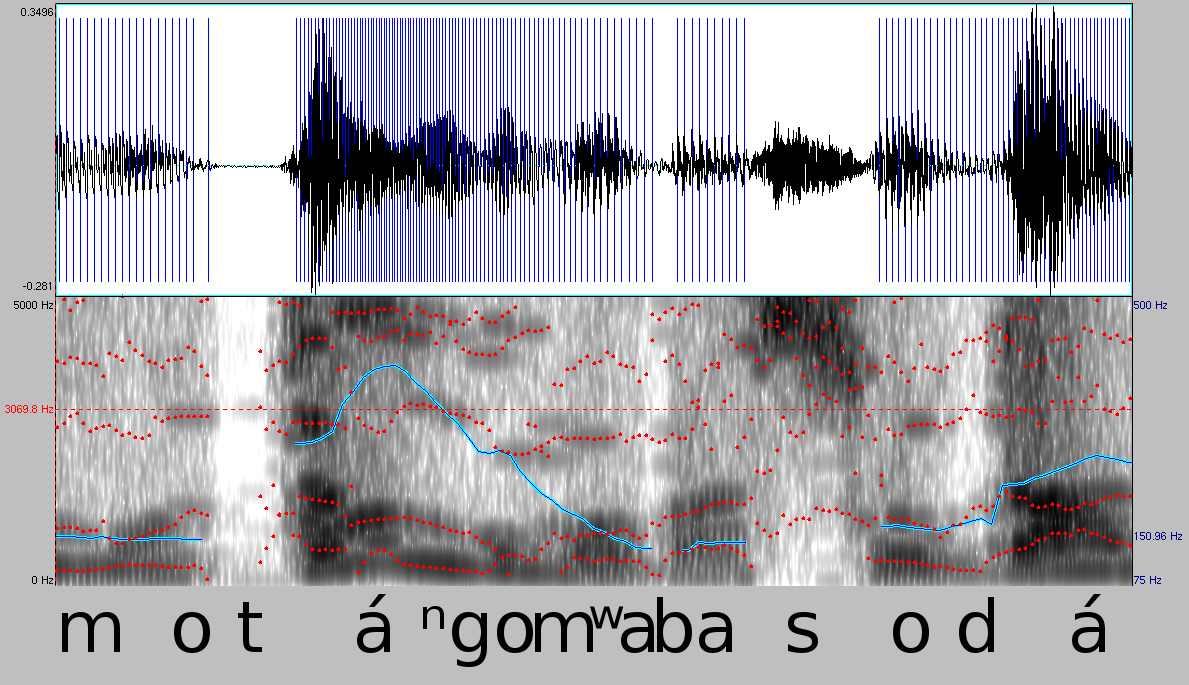
Wiki / Stimme
Inhaltsverzeichnis: (verbergen)
 Spektrogramm einer weiblichen Stimme |
|
Gott […] deine Stimme ist leise geworden |
Frauen können ihre depressive Erkrankung eindämmen, indem sie den Weg zu ihrer eigenen Stimme finden.
Die amerikanische Psychologin und Professorin für Genderstudien Dr. Carol Gilligan betont die Wichtigkeit, das weibliche "Bezie-
hungsselbst" dem männlichen "autonomen Selbst" gleichzu-
stellen und aufzuhören, fremde, männliche Werte überzubewerten. Weibliche Depression kann überwunden werden, wenn Frauen ihre eigenen Fähigkeiten und Ressourcen aufspüren und sie für ihre ur-
eigenen Ziele einsetzen. Wichtig ist, dass sie sich erlauben, Unter-
stützung und Hilfe anzunehmen und zu aktivieren.
Das Risiko für Frauen, depressiv zu werden, erhöht sich, wenn sie ihr Bedürfnis nach Bindung unterdrücken und ihr wahres Selbst zum Schweigen bringen, weil sie glauben, dass dieses im Außen nicht akzeptiert und anerkannt wird.
| Quelle: ► Dr. Carol Gilligan (*1936) US-amerikanische Professorin für Genderstudien, Psychologin, feministische Ethikerin (Gemeinschaft, Beziehung), Autorin, Die andere Stimme. Lebenskonflikte und Moral der Frau, Deutscher Taschenbuch Verlag (dtv), München, 1996 |
| Siehe auch: ► Depression |
| See also: ► Transforming rankist rape culture into digntiarian consent culture and ► Depression |
Laute und schrille Töne (zwischen 2000 und 5000 Hertz) in Form bedeuten seit der Urzeit meisten Gefahr. Die älteren Gehirnregionen werden auch in Alarmbereitschaft versetzt, wenn man mit quietschender Kreide an der Tafel schreibt. Menschen bekommen eine Gänsehaut, Tiere reagieren mit Fellsträuben.
Schreie oder Kreischen aktivieren sowohl die mandelförmige Amygdala und das limbische System. Dieses zweitälteste Gehirn des Menschen verarbeitet Gefühle und Gerüche.
Auch andere Geräusche, die mit Schmerzen oder sonstigen schlechten Erfahrungen zusammenhängen, können im menschlichen Gehirn einen bleibenden Eindruck hinterlassen.
| Reference: ► Scientific paper by Sukhbinder Kumar, Katharina von Kriegstein, Karl Friston, Timothy D. Griffiths, Features versus Feelings: Dissociable Representations of the Acoustic Features and Valence of Aversive Sounds, presented by the weekly peer-reviewed scientific journal The Journal of Neuroscience, volume 32, issue 41, 10. October 2012 |
Persönliche Bekenntnisse
Personal avowals
At age 7.5 Maya Angelou was raped by her "stepfather" Mr. Freeman. She confessed the crime to her brother, who informed the rest of the family. Released from jail after only one day, the rapist was killed, supposedly by Angelou's uncles. As a result the child Maya became mute for nearly 5 years. Her mother used to beat her up for her muteness.

Recommendation
Call for action
Conclusion
Insight
Wounds of patriarchy: Becoming aware of democratic manhood and womanhood vs. patriarchal manhood and womanhood
|
|
Persönliche Bekenntnisse
Personal avowals
Links zum Thema Stimme / VoiceLiteratur
Literature (engl.)
Recension: "...the little book that started a revolution" Externe Weblinks
External web links (engl.)
Audio- und Videolinks
Dokumentarfilme
Etwa 6-15% aller Menschen hören irgendwann einmal im Leben Stimmen. Weit über die Hälfte der weithin stigmatisierten Stimmenhörer sind geistig gesund und leben unauffällig. Gehirnscanner weisen nach, dass das Stimmenhören keine "Einbildung" ist; Betroffene "hören" tatsächlich etwas. Die Inhalte des Gehörten hat mehr Bedeutung als bisher vermutet. Audio and video links (engl.)
Partial transcript: Carol Gilligan: "To care is to be present, it’s to have a voice, it’s to be in relationship.", 9. March 2012
|
Englisch Wiki
Hawkins